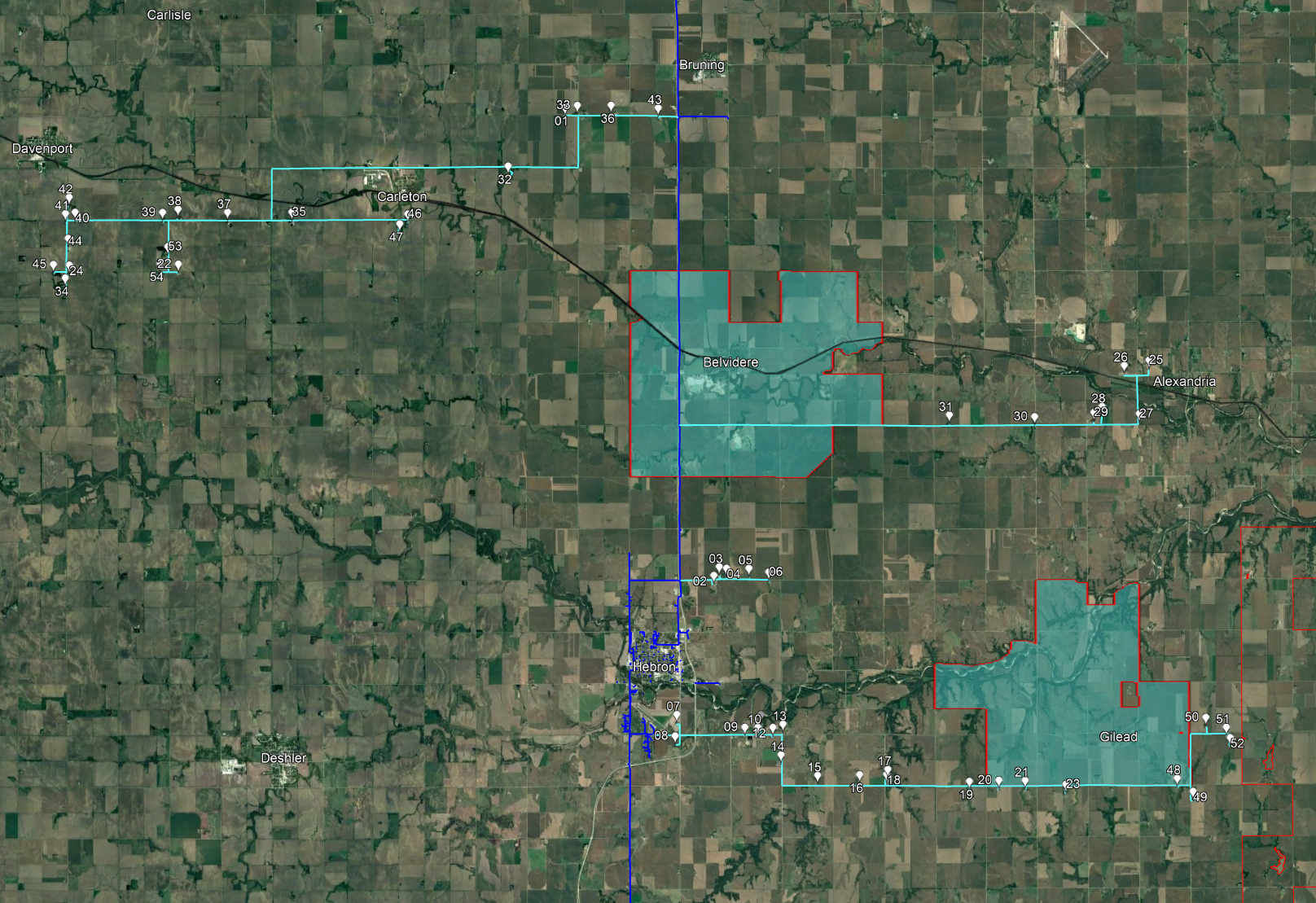
A farmer can only send emails from his cellphone while sitting atop his grain silo. A rancher cannot process his cattle because his smart ear tags fail to connect to Wi-Fi. A student takes hours to upload her homework because her internet connection is so slow.
These are not fictional scenarios. They are examples of rural residents who struggle with reliable internet. While many Nebraskans are familiar with these situations, a team in Thayer County has figured out a way to bring state-of-the-art broadband to even its most remote residents.
It is called “last-mile funding,” said Jason Tuller, a Rural Prosperity Nebraska Extension educator who is part of Thayer County’s broadband action team.
“This is for really rural areas,” he said. “If you look at federal maps, everyone has internet service because things like Starlink are available in the U.S. But it’s expensive and not very fast. So when you get down to it, there are significant portions of the county that don’t really have affordable, reliable service. Our aim was to get those farmers, those ranchers, those families who live in the middle of acres of Nebraska landscape connected.”
As the community development arm of Nebraska Extension, Rural Prosperity Nebraska works with community leaders on locally designed projects that benefit local communities, from economic improvements to leadership development to attracting people. These programs work in a tailored format, drawing from ideas and desires shared by community members and then bringing in the expertise of university educators to help turn aspirations into realities, such as expanding broadband to rural areas.
To connect the county’s most rural residents to the modern internet infrastructure, Thayer County Economic Development is working with Glenwood through a 25/75 grant awarded to the local telecommunications company. Glenwood fronts 25% of the cost, and Thayer County matches that amount with funds from the American Rescue Plan Act. The additional 50% is covered through the Nebraska Broadband Bridge Program, a state program that helps provide broadband networks for unserved and underserved Nebraskans. Earlier this year, the program approved 22 projects for funding, totaling nearly $20 million.

The Thayer County project will begin in late March or early April and be finished by autumn. It will include some 50 miles of fiber, branching out from an existing line that runs along Highway 81, toward Gilead, Alexandria and Carleton, making broadband accessible to 54 houses.
This move has been needed for a long time, said Carley Bruning, executive director of Thayer County Economic Development.
“When we look at rural communities, sometimes people just see houses,” she said. “But I see a spouse that works from home. I see kids that need to do homework. I see a family that would really like to stream Disney+. Nowadays, the internet is infrastructure just like running water.”
The trickiest aspect of approving the project proposal was mapping out unserved and underserved residents, Tuller said. Unserved residents have no access to land-based internet and must rely on satellite service. Underserved residents technically have access to land-based internet even if, as is often the case in rural areas, the technology is antiquated, offering only slow and unreliable access. This is why collaborating with the county broadband action team was so integral to bringing the most benefit to the highest number of residents.
“They would bring in a map and say, ‘If we cover this road here, we’ll reach 10 people,’” Tuller said. “But you’re out on country roads with very few people. Our action team would come in and say, ‘If you take this road instead of that road, you’ll still hit almost all of those people, and you’ll pick up five more. Because we knew who lived on those roads, we were kind of the local boots on the ground to help them with that.”
With the funds now in place and work soon to be underway, Bruning is looking forward to seeing not just what broadband does for current residents, but what it means for Thayer County’s future. Banks will be able to update transactions, stores will be able to run credit cards — not to mention what it will do for residents, she said.
“On a lot of our acreages, rural residents have never lived anywhere with high-speed internet,” Bruning said. “So what they have is good enough for them. But with Glenwood working to bring service to those homes, it’s putting that infrastructure in to make the homes more valuable for when the next generation purchases the homes and starts their family there.”









